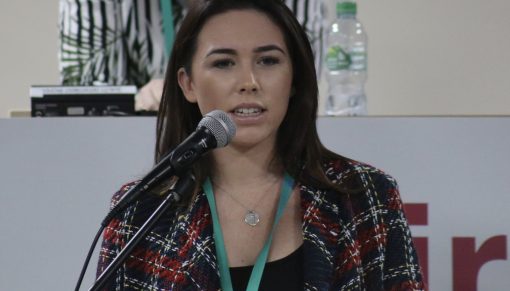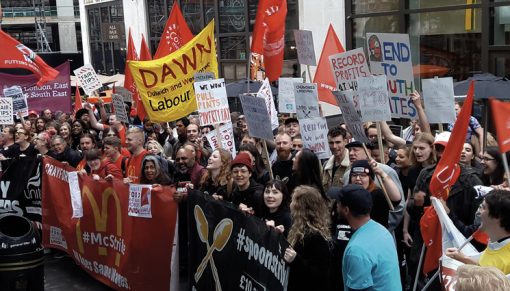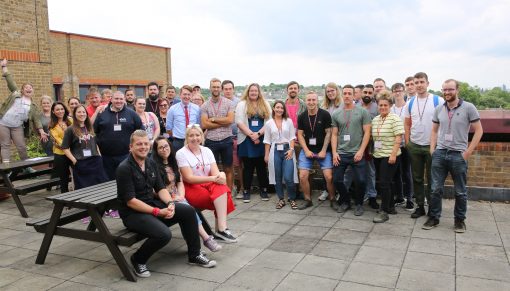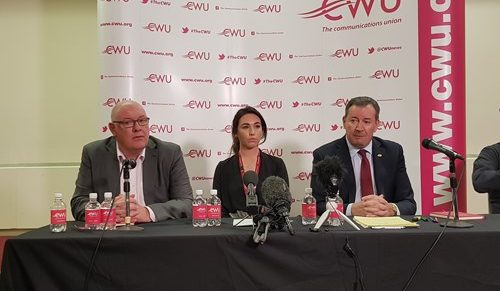Trade Unions in Schools
August 12 2019I recently decided with the full support and help from my branch (Greater Mersey and SW Lancs Amal) l to contact sixth form colleges in the area and ask what is the possibility of us going to them and talking about trade unions. We were overwhelmed really at how quickly they came back and said that they were able to have us in. What we found there was something that encouraged me greatly. The students were interacting, curious and clearly passionate about what it means to be a part of a trade union. They also seemed very politically aware and interested in politics in general which gives me great encouragement.
Obviously, we seen a huge rise in the involvement of young people during the General election in 2017, in which both the values of Jeremy Corbyn and the policies in the Labour Party manifesto seemed to resonate clearly. It was a fantastic campaigning technique and I believe it’s inspired a new generation of activists and supporters. This is where we can connect that political belief and understanding with people’s knowledge of what a trade union is and how being part of one can improve their lives.
I truly believe that the morals and principles held by trade unionists are key in the development of a better society. The lessons of solidarity, togetherness and teamwork are lessons that have always stood the test of time and make up the very spine of the trade union movement. It is the future of that education system and my passion for trade unions, where I see an opportunity to start introducing a level of trade union awareness perhaps.
Although I don’t know enough about the education system to be suggesting a change to the curriculum, all I am asking for is that we maybe start the conversation of how we can introduce some sort of trade union studies into everyday lessons. Which age groups that applies to and how it would be taught is obviously something which could be looked at and developed, but it is an ambition of mine to see this put in place at any level it can.
We also have a responsibility to the trade union movement as well. So often the old-fashioned concept of what it is to be a trade unionist is the lasting impression. Please forgive the stereotype, but this image of older, bald, white, male leading a group of workers out on strike is the one that probably most people outside the movement would point to. It is through trade unions that we have achieved so many basic things like the weekend, bank holidays and a fair day’s work for a fair day pay. For students leaving the education system and entering the world of work, I think they would naturally benefit from knowing their rights, their entitlements and just how powerful being in a collective bargaining unit can be. We have never been good at shouting about our successes as a movement as the struggle never truly ends, but this would be the perfect opportunity to promote trade union history and the great work by generations before us in securing the fantastic benefits of a workplace that we all enjoy today.
This misrepresentation is often the responsibility of the mainstream media and the way they demonise trade unions. I have experienced this first hand in my role in the CWU and I truly believe that through education we can get rid of these unrealistic views of what a trade unionist looks like.
Speaking for myself, I have learnt so much since I became an active member of my union. I have learnt campaigning techniques, public speaking, personal skills and development training. These are all lessons that would benefit anyone, especially at college age. This isn’t an exercise to recruit young people into trade unions, or a membership drive. I would suggest it would be made up of reps from each of the major trade unions to help with the developmnet of the subjects with complete cross union support.
I imagine that the lessons would be spent exploring the history of trade unions (which in my opinion is so important), learning how to present and debate, having the confidence to question an employer, the ability to organise and the confidence to speak publicly. They would be interactive sessions where it would be encouraged to challenge and get involved. There could be activity-based campaign sessions. These are all things which I believe would make the teachings worthwhile, exciting, interesting and relevant.
I know that the world of work is changing and that there are a lot of short term, high turnover jobs out there on offer which may suit people who are looking for flexible ways of working, but that doesn’t mean that we can sit back and watch our young workers being exploited. I just feel so passionately that if they come out of school/college with a basic awareness of how they can become active, we could start to change workplaces all around this country. That all starts at school!













